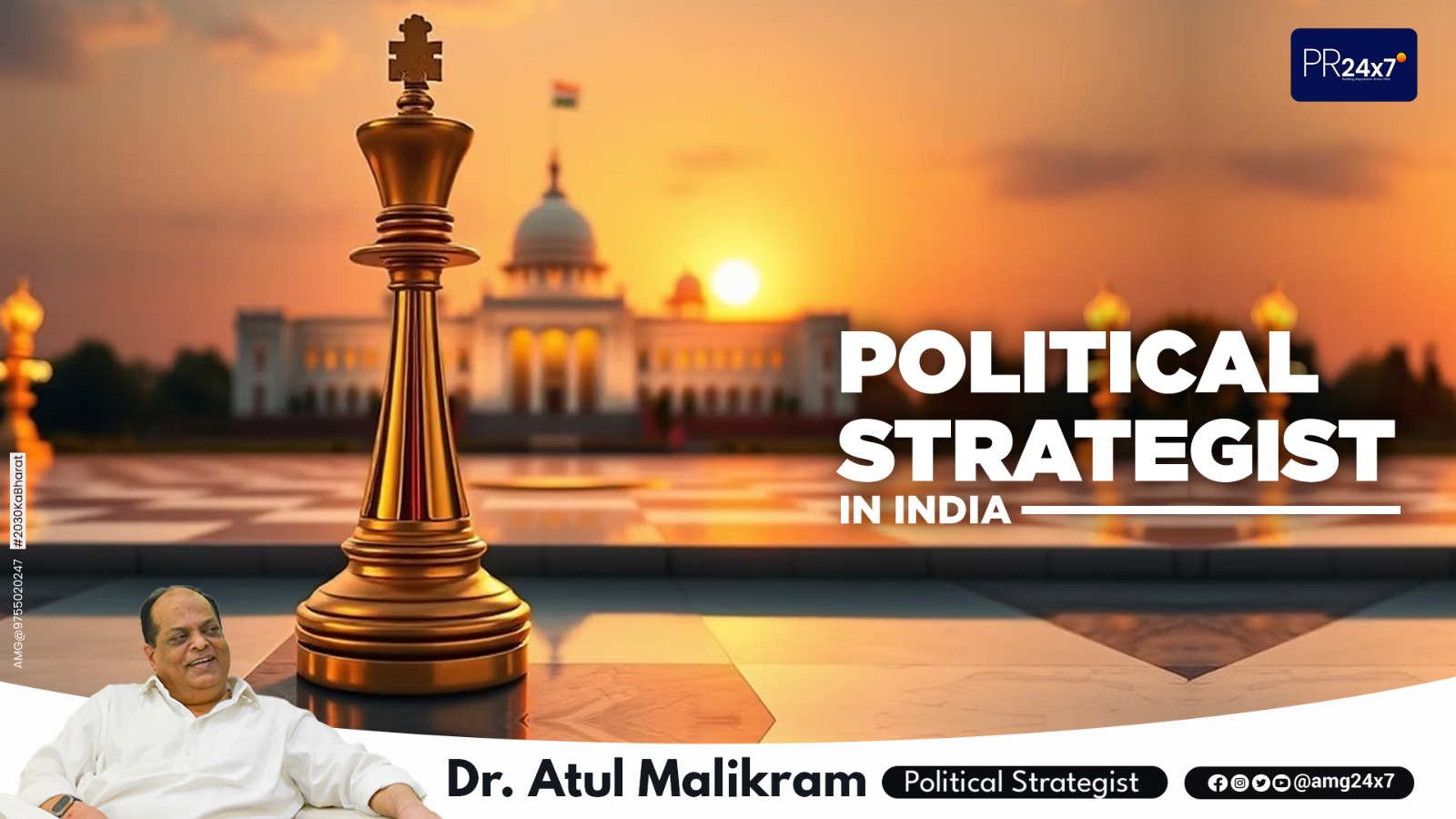
Political Strategist in India
Amidst the persistent shifts and changes in the Indian democracy, a political strategist in India carefully curates every successful campaign while shaping public opinion and balancing the complex web of alliances and voter sentiments. India is home to more than 1.4 billion people which, coupled with the multi party system, makes the country’s cultural, regional and socio economic aspects truly diverse. Hence, the political strategist in India is in such high demand. These specialists guarantee triumphs by using a concoction of ancient knowledge from the Ramayana and Mahabharata and contemporary analytics, social media, and grassroots mobilization. With India aggressively asserting its geopolitical stance, there is a burgeoning need for political strategists in India who can diplomat narratives that lift up their constituencies and aid in enabling constructive participation into the governance structures.
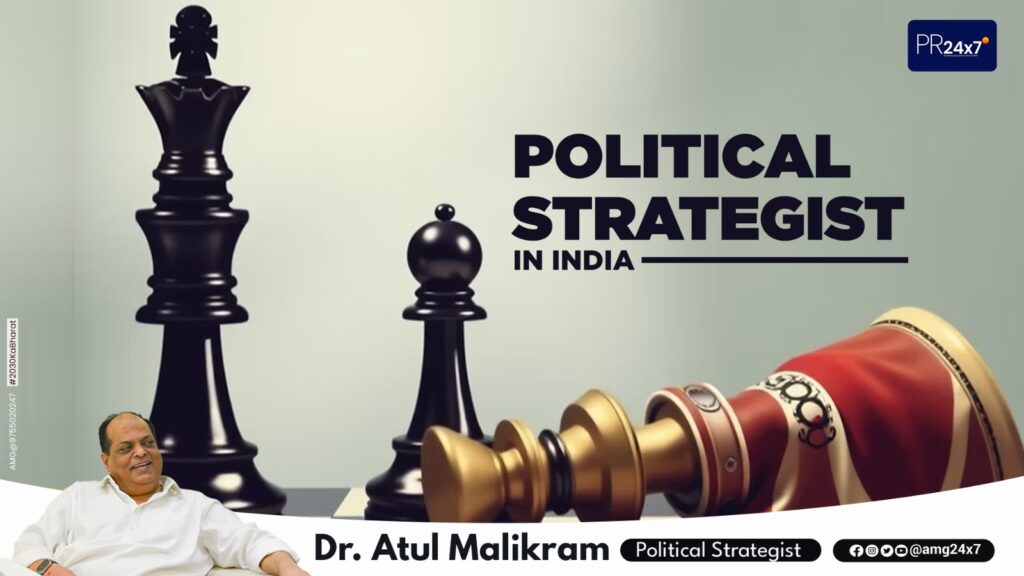
India is officially referred to in the official language as Republic of India. It is comprised of eight union territories and 28 states. union territories. India is the second-most populous nation in the world, and also the biggest democracy. In general, India is divided into six main regions namely East India, West India, North India, South India, Northeast India, and Central India. we touch upon the core of politics, its history, the orbit of political parties, and the remarkable work done by Dr. Atul Malikram, a political strategist in India.
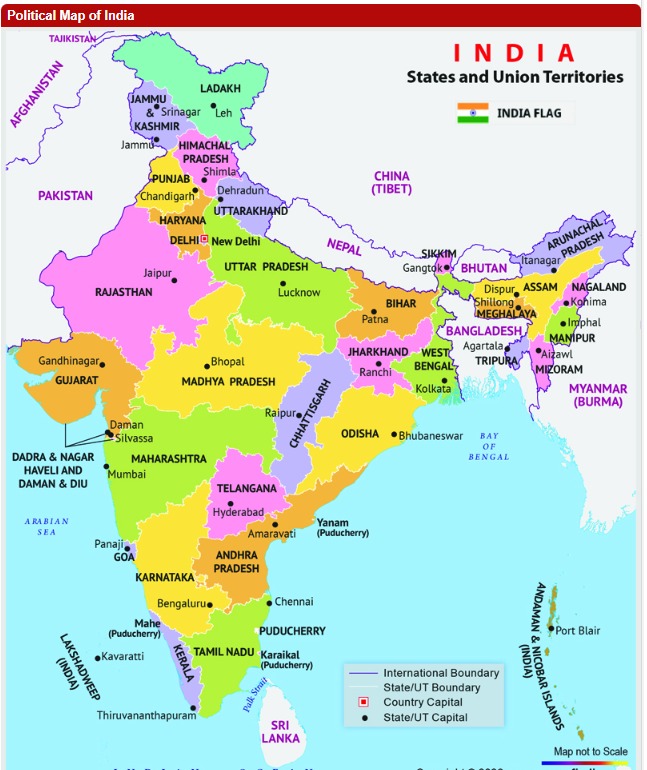
What is Politics? Understanding the Core Concept
At its heart, politics is the science and art of governing societies. It involves decisions that impact communities as well as the allocation of resources as well as conflict resolution as well as the achievement of common goals. The term “politics” originates from the Greek word “polis,” meaning city-state political activity is the exercising of the power to influence legislation, policies and the leadership of a society for development.
In the Indian context, politics goes beyond simple governance. It is involved in everyday life, and is interspersed with religious, cultural, and social aspects. A political strategist in India is aware of the many facets of Indian politics and includes ideological conflicts as well as caste influences, regional identity, and economic inequities. For instance, the political system in India is the driving force behind initiatives that range from rural infrastructure projects to urban welfare programs to ensure that the population is diverse that is more than 1.4 billion.
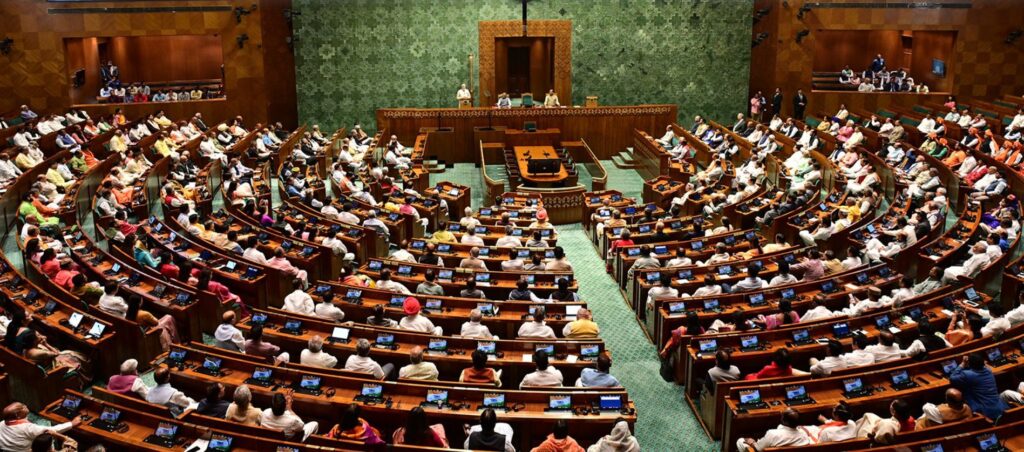
India boasts one of the world’s most ancient political histories, spanning millennia. Ancient Indian governance was sophisticated, emphasizing dharma (moral duty), strategic planning, and diplomatic relations. In contrast to Western individualism, ancient politics in India prioritized communal balance and ethical leadership–principles that continue to inform the work of a modern political strategist in India.
History of Politics in Ancient India: Roots of Strategy and Governance
India has one of the most ancient histories of politics that spans millennia. In the past, Indian administration was highly advanced, focusing on the concept of dharma (moral obligation) as well as strategic planning as well as diplomatic relationships. In contrast to Western individualism, ancient politics in India prioritized communal balance and ethical leadership–principles that continue to inform the work of a modern political strategist in India.
Politics in Vedic and Pre-Mauryan Eras
In the Vedic period (circa 1500 to 500 BCE) the earliest ideas about politics emerged from texts such as the Rigveda and then the Arthashastra. The rulers, also known as rajas who consulted with assemblies such as the sabhas or samitis and were hinting towards proto-democratic methods. The notion the concept of “rajdharma” stressed a king’s duty to protect people, provide justice and improve well-being. These concepts resonate with the current political strategists of India who offer advice on ethical strategy for campaigns.
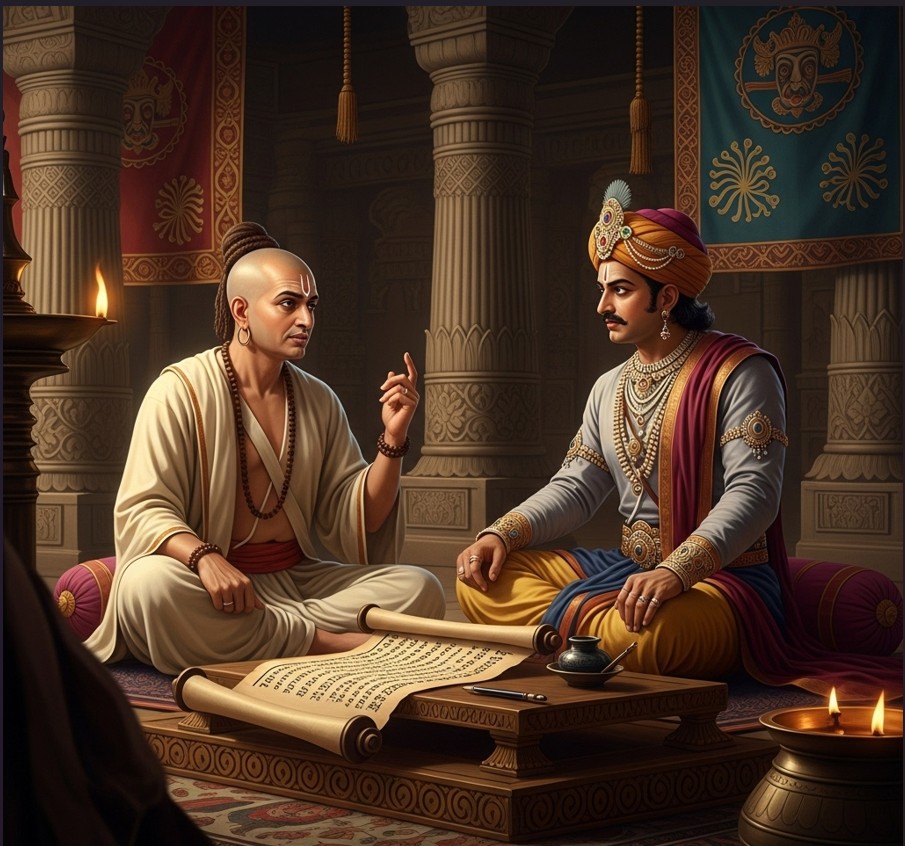
The Arthashastra written by Chanakya (Kautilya) composed about 300 BCE. It is an important work in the field of statecraft. The book focuses on intelligence gathering economic and political policies as well as techniques for warfare, and suggests methods such as “sama, dana, bheda, danda” (persuasion, coercion, division, or punishment) to consolidate power.
Examples from Ramayana: Diplomacy and Ethical Leadership
The Ramayana, traditionally credited to Valmiki around 500 BCE, distills lasting political wisdom through stories of diplomatic finesse and moral governance. Rama’s trek through exile and his steadfast pursuit of Sita reveal how he fashioned alliances and wielded moral sway. His accord with Sugriva and Hanuman exemplifies coalition-building, a timeless maneuver that still underpins Indian political strategy when candidates court diverse voter blocs.
When Rama negotiated with the entire vanara horde, he replicated advice a modern political strategist in India might offer: nest the central leader in a broad network of local heroes and watchdogs. His fierce devotion to dharma, even in bruising encounters, underlines the principle that ethical constraints can be a leader’s greatest asset. Today’s consultants, echoing the ethical charge of that ancient Rama, are thus inspired to weave integrity into campaign DNA, akin to Dr. Atul Malikram’s commitment to grassroots uplift at each constituency doorstep.
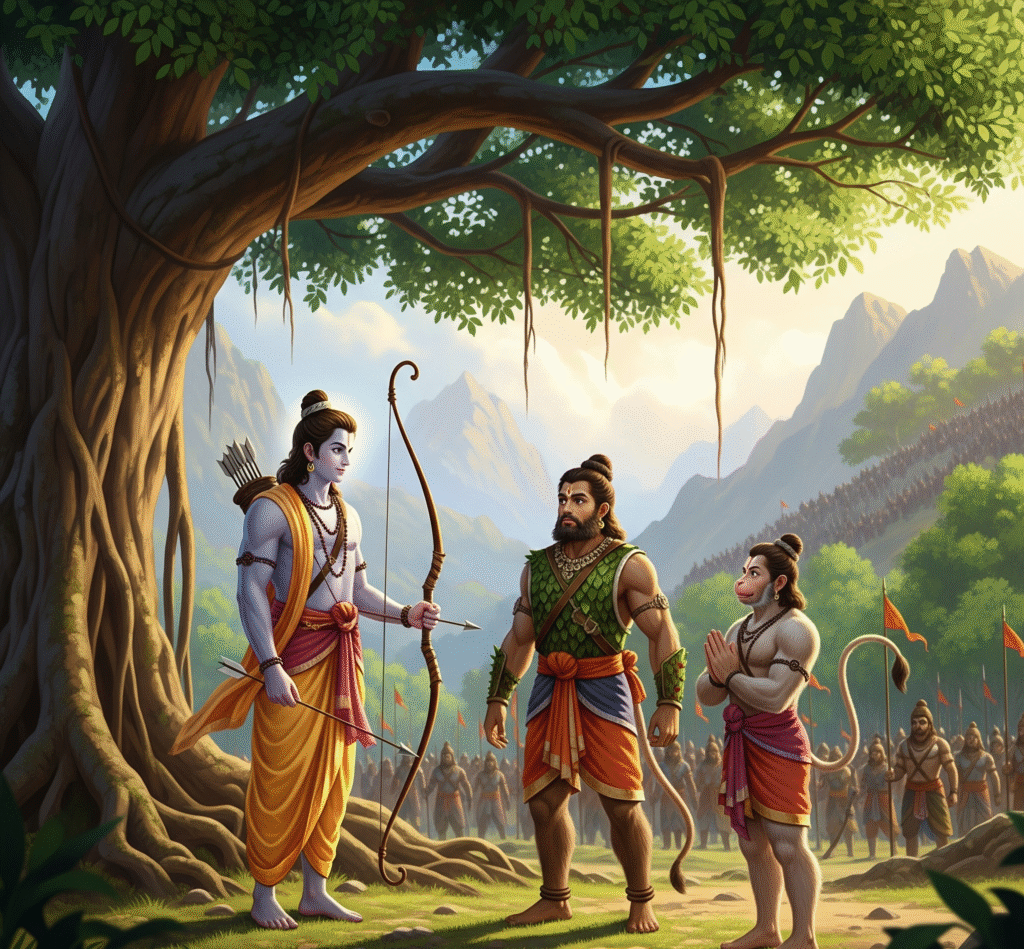
Lessons from Mahabharata: War, Strategy, and Moral Dilemmas
Krishna’s role as advisor highlights diplomatic polish and psychological warfare—dividing enemy formations with cleverly chosen words, much like a political strategist in India dissects electoral maps to assign messaging to micro-castes. The text warns, through Duryodhana’s downfall, that overconfidence can obliterate even the strongest. Political strategists in India must therefore constantly gauge the public pulse, lest they over-reach.
These stories still pulse through the campaign bloodstream. A political strategist in India, standing in a war room, may cite Rama’s commitment to dharma the way a Western consultant might cite poll numbers—waiting for the voters in Madhya Pradesh or Uttar Pradesh to nod in recognition of inherited virtue. Legends become talking points; the electorate becomes the stage.
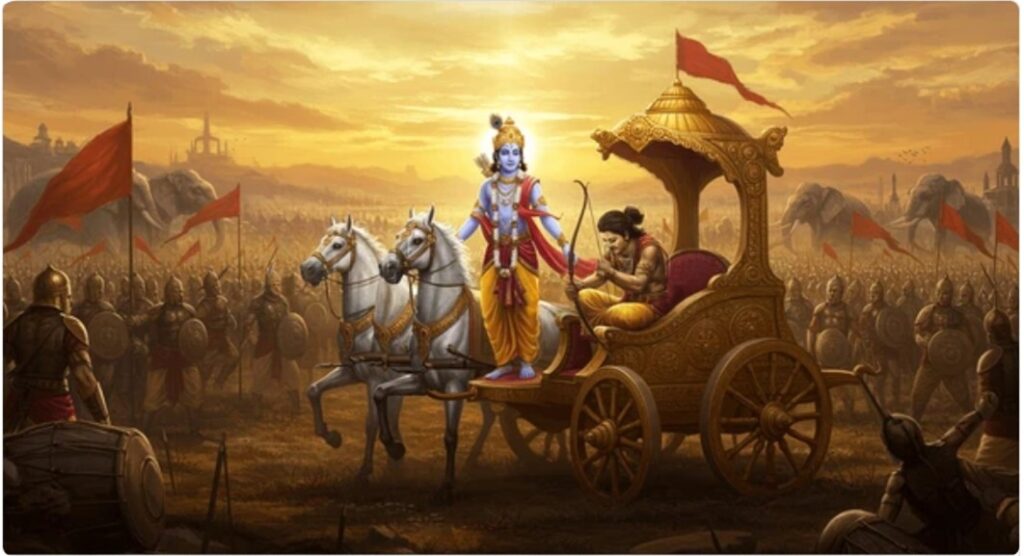
Political Parties in India: The Backbone of Democracy
India’s multi-party framework is a colorful tapestry mirroring its pluralism. Post-1947 independence, parties have shifted from the Indian National Congress’s dominance to a diverse, competitive arena, where a political strategist in India plays a key role in maneuvering this complexity.
Major National Parties
Indian National Congress (INC): Established in 1885, this historic party spearheaded independence. Now in opposition, it champions secularism and equity.
Bharatiya Janata Party (BJP): Formed in 1980 with roots in Hindu nationalism, it has led since 2014 under Prime Minister Narendra Modi. Here, a political strategist in India utilizes digital platforms and patriotic themes for mass engagement.
Aam Aadmi Party (AAP): Emerging from 2012 anti-corruption drives, it rules Delhi and Punjab, attracting city dwellers with reformist policies.
Regional Powerhouses
Parties such as Trinamool Congress (TMC) in West Bengal, Dravida Munnetra Kazhagam (DMK) in Tamil Nadu, and Shiv Sena in Maharashtra are vital for national coalitions. In areas like Madhya Pradesh and Rajasthan, entities like the Bahujan Samaj Party (BSP) cater to caste-based voters.
Coalitions like the National Democratic Alliance (NDA) and the INDIA alliance demonstrate how a political strategist in India engineers partnerships for wins. With more than 2,500 parties, a political strategist in India must adeptly handle voter demographics, economic concerns, and caste dynamics.
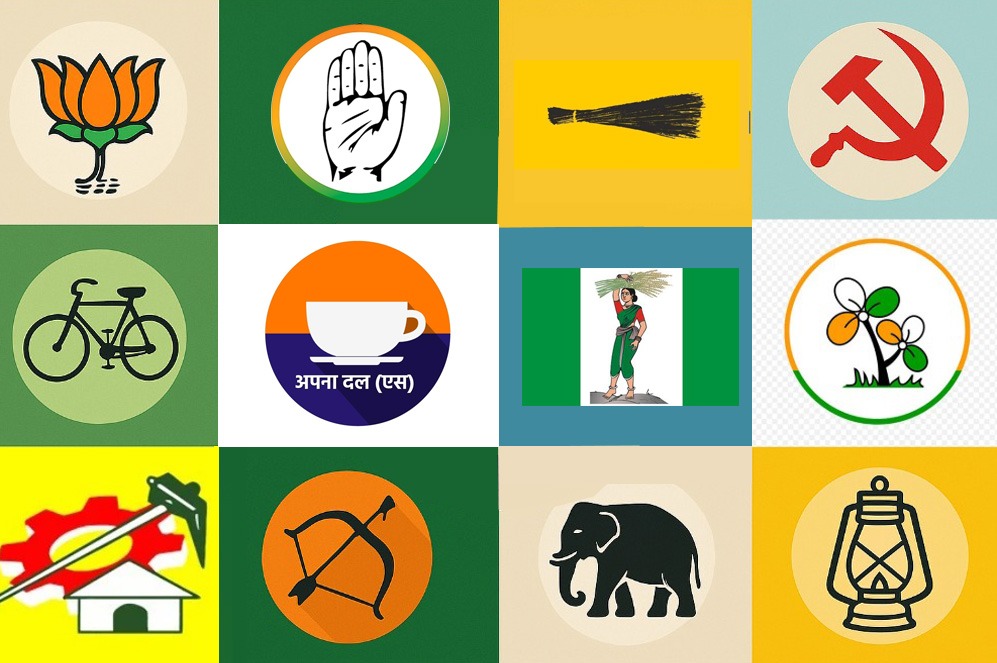
Indian Political Parties
| Party Name | Abbreviation | Leader(s) | Ideology | Election Symbol |
|---|---|---|---|---|
| Aam Aadmi Party | AAP | Arvind Kejriwal | Welfarism, Indian Nationalism, Populism, Secularism | Broom |
| Bahujan Samaj Party | BSP | Mayawati | Social Justice, Self-respect | Elephant |
| Bharatiya Janata Party | BJP | J. P. Nadda | Conservatism, Neoliberalism, Hindutva, Hindu Nationalism, Right-wing Populism | Lotus |
| Communist Party of India (Marxist) | CPI(M) | M. A. Baby | Communism, Marxism-Leninism, Secularism | Hammer and Sickle |
| Indian National Congress | INC | Mallikarjun Kharge | Big Tent, Liberalism, Social Democracy, Secularism, Civic Nationalism | Hand |
| National People’s Party | NPP | Conrad Sangma | Conservatism, Regionalism | Book |
| All India Trinamool Congress | AITC | Mamata Banerjee | Populism, Secularism | Flowers and Grass |
| Communist Party of India | CPI | D. Raja | Communism, Marxism-Leninism | Ears of Corn and Sickle |
| Janata Dal (Secular) | JD(S) | H. D. Deve Gowda | Social Democracy, Secularism | Lady Farmer |
| Janata Dal (United) | JD(U) | Nitish Kumar | Socialism, Secularism | Arrow |
| Nationalist Congress Party | NCP | Ajit Pawar | Progressivism | Clock |
| All India Anna Dravida Munnetra Kazhagam | AIADMK | Edappadi K. Palaniswami | Social Democracy, Populism | Two Leaves |
| Dravida Munnetra Kazhagam | DMK | M. K. Stalin | Social Democracy, Dravidian Nationalism | Rising Sun |
| Lok Janshakti Party (Ram Vilas) | LJP(RV) | Chirag Paswan | Secularism | Helicopter |
| Naga People’s Front | NPF | Kuzholuzo Nienu | Regionalism | Cock |
| Nationalist Congress Party (Sharadchandra Pawar) | NCP(SP) | Sharad Pawar | Progressivism | Man Blowing Turha |
| Rashtriya Janata Dal | RJD | Lalu Prasad Yadav, Tejashwi Yadav | Social Democracy, Secularism | Lantern |
| Telugu Desam Party | TDP | N. Chandrababu Naidu | Regionalism, Economic Liberalism | Bicycle |
| YSR Congress Party | YSRCP | Y. S. Jagan Mohan Reddy | Regionalism | Ceiling Fan |
| All India Forward Bloc | AIFB | Debabrata Biswas | Left-wing Nationalism | Lion |
| All India Majlis-e-Ittehadul Muslimeen | AIMIM | Asaduddin Owaisi | Minority Rights | Kite |
| All India N.R. Congress | AINRC | N. Rangaswamy | Regionalism | Jug |
| All India United Democratic Front | AIUDF | Badruddin Ajmal | Minority Rights | Lock and Key |
| All Jharkhand Students Union | AJSU | Sudesh Mahto | Regionalism | Banana |
| Apna Dal (Sonelal) | AD(S) | Anupriya Patel | Regionalism | Cup and Saucer |
| Asom Gana Parishad | AGP | Atul Bora | Regionalism | Elephant |
| Bharat Adivasi Party | BAP | Mohan Lal Roat | Tribal Rights | Hockey Stick and Ball |
| Bharat Rashtra Samithi | BRS | K. Chandrashekar Rao | Regionalism | Car |
| Biju Janata Dal | BJD | Naveen Patnaik | Regionalism, Social Democracy | Conch |
| Bodoland People’s Front | BPF | Hagrama Mohilary | Regionalism | Nangol |
| Citizen Action Party – Sikkim | CAP-S | Ganesh Kumar Rai | Regionalism | Candle |
| Communist Party of India (Marxist–Leninist) Liberation | CPI(ML)L | Dipankar Bhattacharya | Communism, Marxism-Leninism | Flag with Three Stars |
| Desiya Murpokku Dravida Kazhagam | DMDK | Premallatha Vijayakant | Populism | Nagada |
| Goa Forward Party | GFP | Vijai Sardesai | Regionalism | Coconut |
| Hill State People’s Democratic Party | HSPDP | KP Pangniang | Regionalism | Lion |
| Indian National Lok Dal | INLD | Om Prakash Chautala | Regionalism | Spectacles |
| Indian Union Muslim League | IUML | Sadiq Ali Shihab Thangal | Minority Rights | Ladder |
| Indigenous People’s Front of Tripura | IPFT | N.C. Debbarma | Regionalism | Dao |
| Jammu & Kashmir National Conference | JKNC | Farooq Abdullah | Regionalism, Secularism | Plough |
| Jammu and Kashmir National Panthers Party | JKNPP | Bhim Singh | Regionalism | Bicycle |
| Jammu and Kashmir Peoples Democratic Party | JKPDP | Mehbooba Mufti | Regionalism | Ink Pot and Pen |
| Janasena Party | JSP | Pawan Kalyan | Regionalism | Glass Tumbler |
| Jannayak Janta Party | JJP | Dushyant Chautala | Regionalism | Key |
| Janta Congress Chhattisgarh | JCC | Renu Jogi | Regionalism | Haldhar |
| Jharkhand Mukti Morcha | JMM | Shibu Soren, Hemant Soren | Regionalism | Bow and Arrow |
| Kerala Congress | KC | P. J. Joseph | Regionalism | Bicycle |
| Kerala Congress (M) | KC(M) | Jose K. Mani | Regionalism | Two Leaves |
| Maharashtra Navnirman Sena | MNS | Raj Thackeray | Regionalism, Hindu Nationalism | Railway Engine |
| Maharashtrawadi Gomantak Party | MGP | Deepak Dhavalikar | Regionalism | Lion |
| Mizo National Front | MNF | Zoramthanga | Regionalism | Star |
| Nationalist Democratic Progressive Party | NDPP | Neiphiu Rio | Regionalism | Globe |
| Naam Tamilar Katchi | NTK | Seeman | Tamil Nationalism | Ganna Kisan |
| People’s Party of Arunachal | PPA | Kamen Ringu | Regionalism | Maize |
| Rashtriya Loktantrik Party | RLP | Hanuman Beniwal | Regionalism | Bottle |
| Republican Party of India (Athawale) | RPI(A) | Ramdas Athawale | Dalit Rights | Lion |
| Revolutionary Goans Party | RGP | Viresh Borkar | Regionalism | Football |
| Revolutionary Socialist Party | RSP | Manoj Bhattacharya | Communism | Spade and Stoker |
| Samajwadi Party | SP | Akhilesh Yadav | Socialism, Secularism | Bicycle |
| Shiromani Akali Dal | SAD | Sukhbir Singh Badal | Sikhism, Regionalism | Scales |
| Sikkim Democratic Front | SDF | Pawan Kumar Chamling | Regionalism | Umbrella |
| Sikkim Krantikari Morcha | SKM | Prem Singh Tamang | Regionalism | Table Lamp |
| Shiv Sena | SS | Eknath Shinde | Hindu Nationalism, Regionalism | Bow and Arrow |
| Shiv Sena (Uddhav Balasaheb Thackeray) | SS(UBT) | Uddhav Thackeray | Hindu Nationalism, Regionalism | Flaming Torch |
| Tipra Motha Party | TMP | Pradyot Bikram Manikya Deb Barma | Regionalism | Not Available |
| United Democratic Party | UDP | Metbah Lyngdoh | Regionalism | Drum |
| United People’s Party Liberal | UPPL | Urkhao Gwra Brahma | Regionalism | Tractor |
| Viduthalai Chiruthaigal Katchi | VCK | Thol. Thirumavalavan | Dalit Rights | Pot |
| Voice of the People Party | VPP | Ardent Miller Basaiawmoit | Regionalism | Winnowing Basket |
| Zoram Nationalist Party | ZNP | H. Lalrinmawia | Regionalism | Sun (without rays) |
| Zoram People’s Movement | ZPM | Lalduhoma | Regionalism | Not Available |
The Role of Political Parties in India: Driving Democratic Governance
Parties that represent the political in India play a crucial role in making sure that democracy functions properly through various crucial tasks:
- Representation: They represent diverse social and political interests, making sure that voices from all regions, castes or communities can be heard. For instance regional parties such as DMK are focused on issues that affect the state while national parties like BJP are more general in their approach to issues.
- policy formulation Parties write manifestos that outline their goals, and provide guidelines for their governance when they are elected. The INC’s emphasis on social justice, or the AAP’s emphasis on anti-corruption shape the policy debate.
- Governance Formation In India’s system of parliamentary government, the coalition or party that has the Lok Sabha majority forms the government. Parties in India such as the BJP which is the largest of 14 states are a good example of this.
- “Checks and Balances Opposition parties, including INC, for instance INC which has 101 Lok Sabha seats, scrutinize government decisions, and ensure accountability.
- Election Mobilization by means of rallies and campaigns, parties reach out to citizens, increasing the number of voters who vote that has proven to be significant in India’s election, with more than 900 million registered voters in the year 2019.
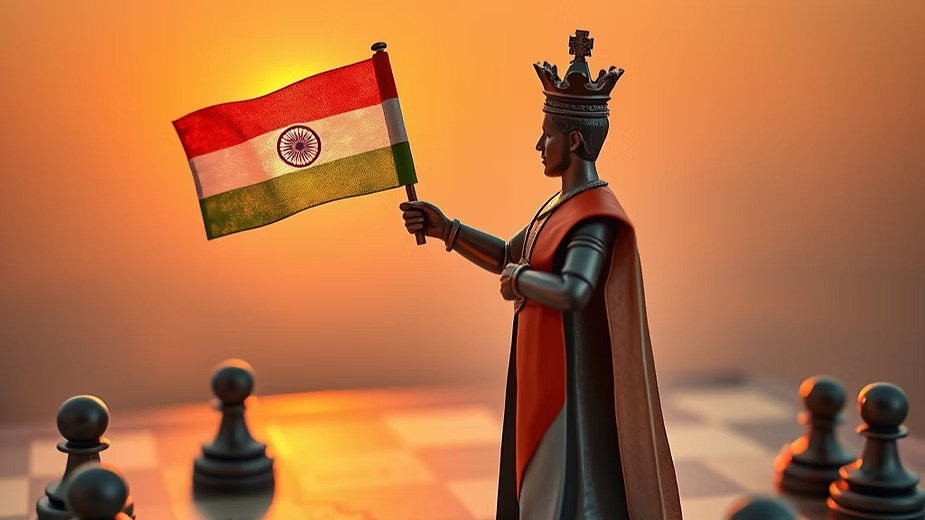
Political Strategists and Political Parties in India: A Symbiotic Relationship
The performance of political parties in India is often dependent on the skills of political strategists who develop campaigns, analyse voter data, and oversee public perception. A political strategist can advise on the use of messaging, alliances and crisis management, making sure that the parties are able to connect with voters.
Defining a Political Strategist in India
A strategist for politics in India is a professional who combines public relations, data analytics and regional information to help parties achieve the success of their elections. In contrast to pollsters, who rely only on polls, political strategists create elaborate plans that range starting with voter segments to online campaign. The most important skills are:
- Local Experience Learning about local complexities, like the caste system and caste politics in Uttar Pradesh.
- Data-driven Insights Utilizing AI as well as analytics reach the most important constituencies.
- Story Building creating compelling stories using social and media platforms.
Strategists in Election Campaigns
Elections are a battlefield where the strategists shine. In India’s huge polls strategies are:
- Voter The purpose of targeting The ability to tailor messaging, e.g., agriculture for rural voters, job opportunities for urban residents.
- Digital campaigns Utilizing platforms such as WhatsApp as shown in the BJP’s strategy for 2019.
- Grassroots Efforts: Building booth-level networks for voter outreach.
- Crisis Management Dealing with controversies for example, handling media when scandals occur.
Spotlight on Dr. Atul Malikram: A Visionary Political Strategist in India Shaping the Future of Electoral Success
In the ever-changing and dynamic environment of Indian political life, very few names are as powerful in terms of power and vision like Dr. Atul Malikram, a prominent strategist for politics in India his expertise has revolutionized the process of planning a campaign, mobilizing a party and public relations throughout the Hindi central region. With more than two years of experience at interplay of communication, media and political science, the Dr. Malikram has emerged as an expert advisor and the architect behind the success of various major parties across India.
One of the best political strategists in India the Dr. Atul Malikram’s journey began in 1999 as a PR professional. His early exposure to media dynamics provided him with an unrivalled perspective on public opinion, narrative development and crisis management. These skills were later to become the basis to his success an political strategists in India. He was the first to established PR24x7, a revolutionary communications firm that seamlessly integrated strategies for media and political campaigns. It was the start of a new age in consulting for political campaigns, when analytics based on data, behavioral research and the ability to engage with media in real-time was the main factor in winning elections.

The Rise of a Trusted Political Strategist in India
What makes the Dr. Atul Malikram apart from other consultants in the field is his ability to spot political shifts prior to their occurrence. As an leading political strategist in India His predictions have proven reliable time and time again, earning his trust among political leaders as well as policymakers. Some of his more memorable predictions was the well-publicized switch in Jyotiraditya Scindia’s party from Congress to the BJP, a shift that changed the political landscape in Madhya Pradesh. His in-depth understanding of party dynamics within the organization as well as regional sentiments and the ambitions of leaders allowed him to predict this change prior to it becoming public.
His tactical interventions have been a major factor in the Congress party’s victory at Chhattisgarh as well as Rajasthan. By developing targeted messages as well as optimizing media outreach and providing advice on the selection of candidates and alliance strategies Dr. Malikram provided the blueprint for success in these critical states. His strategy is a blend of traditional wisdom and modern technology for communication and makes him an essential advisor for political parties looking to be successful in a digital age.
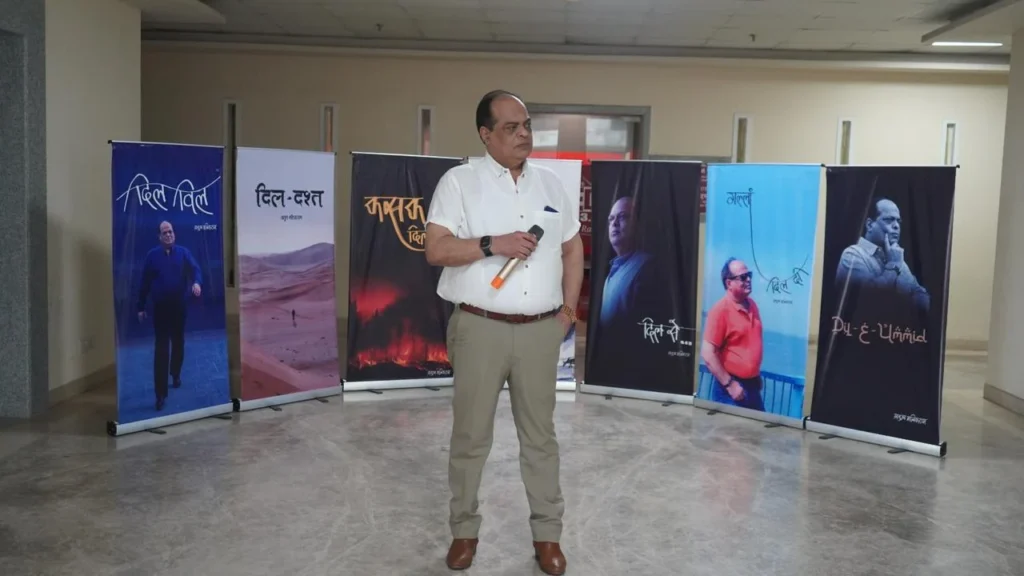
Expanding Influence Across the Hindi Heartland
These states, Madhya Pradesh, Rajasthan, Uttar Pradesh, and Chhattisgarh constitute the heart of India’s battleground for political power. the Dr. Atul Malikram has established an unrivaled presence within this region. The region is known for being the Hindi heartland the states are not just politically important, but also culturally and socially diverse. The process of navigating this complexity requires an in-depth understanding of caste relations and regional aspirations, as well as language identities, all of which Malikram. Malikram masterfully incorporates into his plans.
As a political strategists in India He focuses on localized campaigns that are tailored to specific community issues. If it’s about tackling agrarian poverty within remote UP and urban unemployment among youth in Indore his strategies are grounded in the realities of the ground. This highly localized and scalable model has earned him the status of a top consultant for regional and national parties looking to increase their reach with voters.
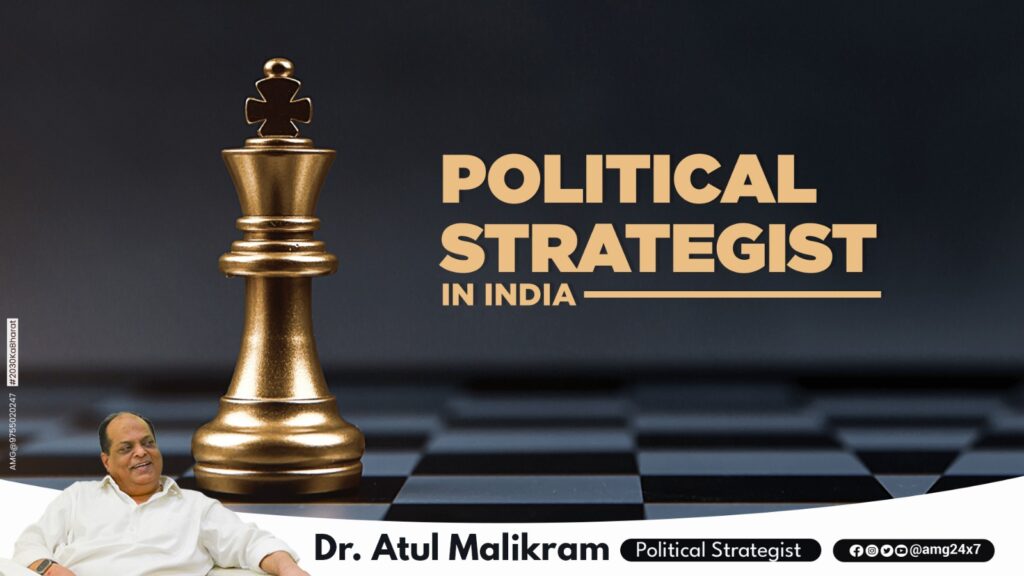
Beyond Politics: A Holistic Vision for Social Impact
Even though Atul Malikram, Dr. Atul Malikram is widely acknowledged as an leading strategic strategist for politics in India His contributions go beyond the electoral campaign. He believes that real political leadership should be grounded by social accountability and sustainable growth. This is why he has off-stage projects, which support his work in politics and boost the image of the political parties which he counsels.
A single of his more ingenuous social initiatives includes his “Bhadas” anger management cafe located in Indore–a safe place where people can vent their frustration and have a dialogue and work on emotional control. In a world that is increasingly influenced by polarization and stress Bhadas is a significant move towards mental health and a harmonious civic environment. It also represents Dr. Malikram’s belief in the notion that the foundation of stability for political systems is the health of individuals and communities.
Through his non-profit organization, “Being Responsible” The organization promotes his rights as well as the dignity of the elderly citizens, promoting improved healthcare, social security and intergenerational bonds. These efforts do not just improve lives, but also establish the political parties as a compassionate institution who care about all segments of society.
Furthermore the Dr. Malikram leads the #2030KaBharat campaign which is a progressive initiative that is aligned in line with United Nations Sustainable Development Goals (SDGs). The campaign is focused on sustainability of the environment, education gender equality, clean energy, which are influencing the priorities of voters. Through integrating these issues into the political conversation, he assists parties to develop plans for the long term rather than making the short-term promises of electoral success.
Author, Educator, and Thought Leader
The Dr. Atul Malikram is also an accomplished author, having numerous books through Amazon or Flipkart which explore the intricate details of Indian governance, politics and social behaviour. The titles “The New Political India”, “Media and Power”, and “Youth and Democracy” have enthused a whole new generation of politicians professional, students, and academics. His writings strengthen his position as an leading political strategists in India providing strategies for ethical leadership as well as efficient governance.
The recognition for his academic achievements includes the award of an Honorary Doctorate degree from California Public University in 2024 which is a testimony to his contribution to public affairs and communications. He also received the famous Godfrey Phillips Red and White Gold Award, which recognizes excellence for public relations, as well as building a nation.
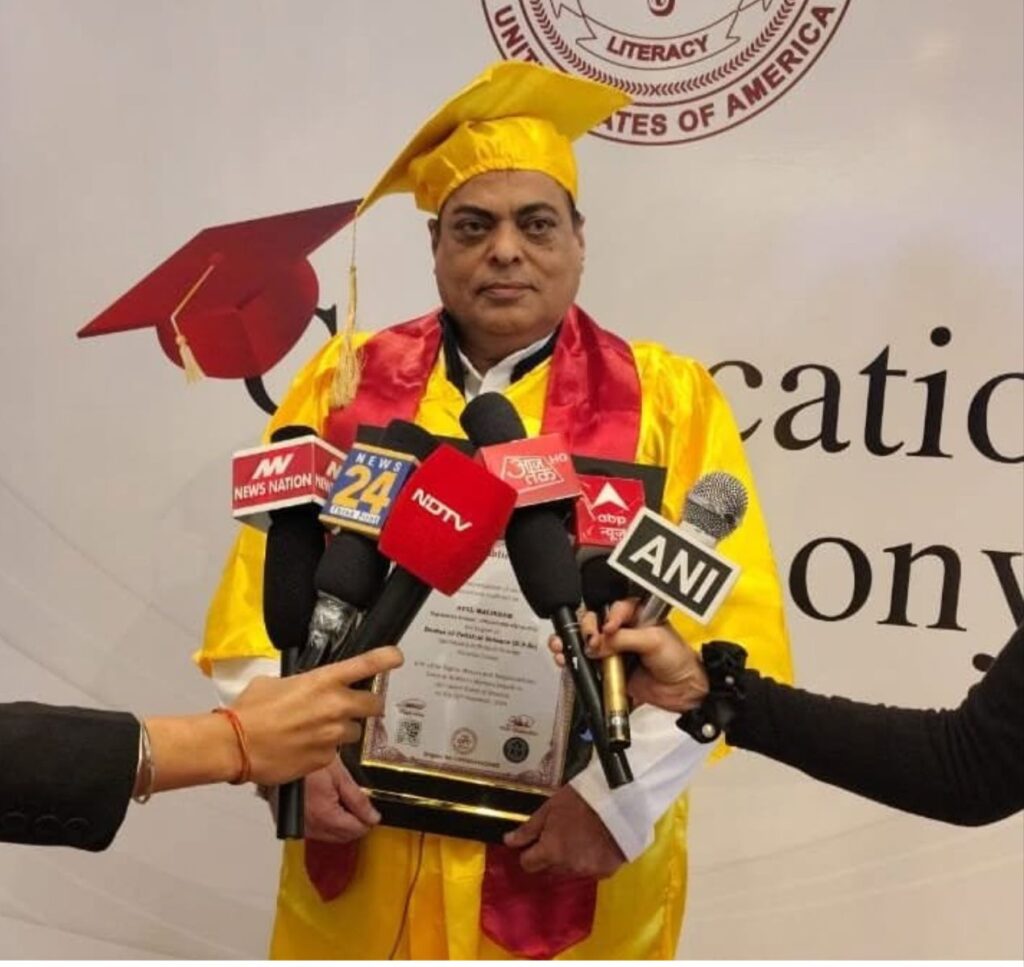
Why Dr. Atul Malikram Stands Out Among Political Strategists in India
In a world where political consulting is typically thought of as transactional or a in the short term the Dr. Atul Malikram brings a unique combination of honesty, vision, and executing. His comprehensive approach – blending communication, PR communications as well as grassroots mobilization and social impact–sets an unmatched standard for what it takes for the best political strategists in India in the present.
He isn’t content with helping candidates win elections, he assists them in gaining trust, create institutions and provide services to the public. His work helps strengthen the democratic fabric by promoting transparency as well as accountability and growth that is inclusive.
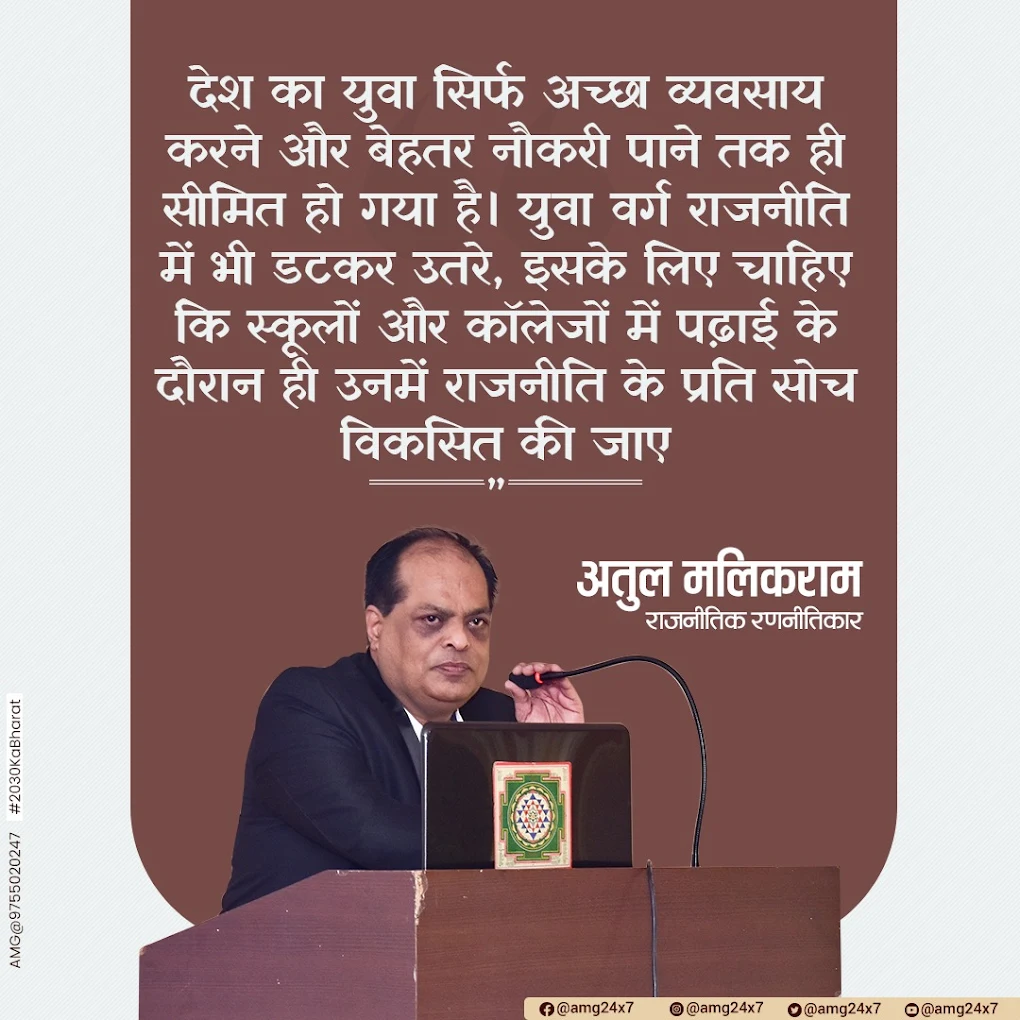
The Future of Political Strategy in India
As India moves towards 2030 as well as beyond, it is likely that the job of political strategists in India is likely to increase in importance. With the increasing level of voter awareness as well as digital revolutions and the complexities of socio-economic challenges parties require more than slogans. They require smart, sustainable strategies. The Dr. Atul Malikram embodies this future.
His transformation from a PR specialist to a powerful nation-wide political strategists in India is an excellent illustration of how communication, understanding and strategic thinking are able to change the way we think about politics. If you want any political party to make it in the modern age, aligning itself with a visionary such as the Dr. Atul Malikram isn’t just an advantage. It’s vital.